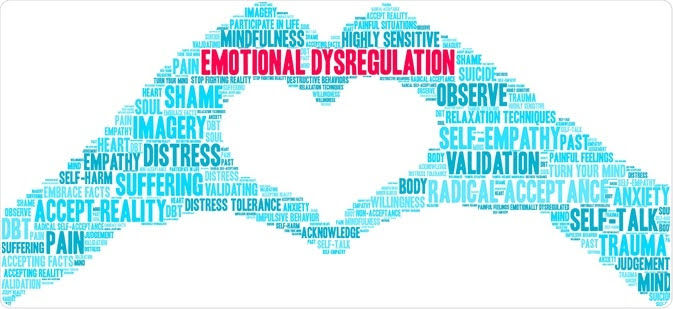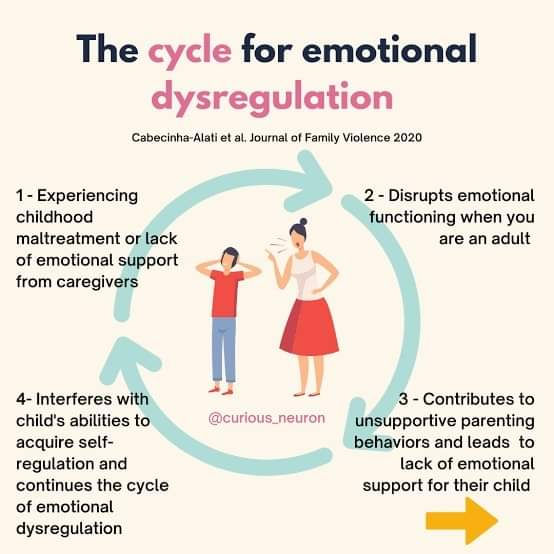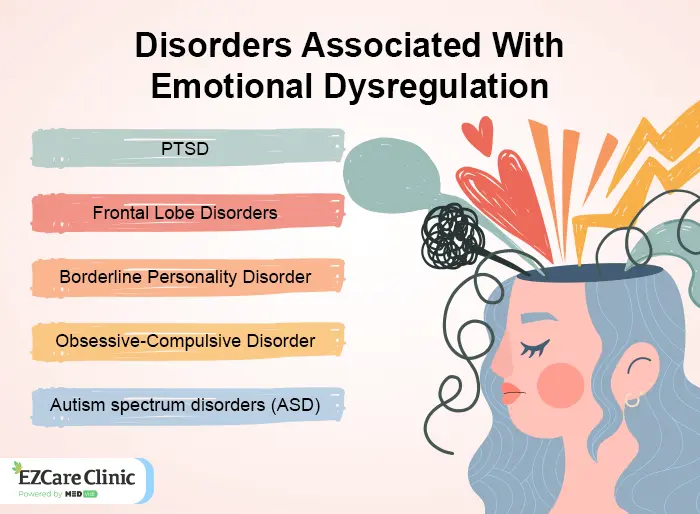
ED (not the type you're thinking of!) #2023 #HEALTH #cptsdandmedotcom
- jasminessteiner
- Jan 5, 2023
- 7 min read

This super beneficial article comes from Psychology Today (link at end of article along with multiple other great resource links ). I personally have ED myself (lol not the first type that usually comes to mind when saying to the average person ) , with EXTREME Complex PTSD.
Being raised by two people who have their own extreme versions of CPTSD themselves , undiagnosed ...( Both of my parents have the exact ed symptoms as well, with one having it very very severe who I believe is where I picked it up from ) I am now acknowledging it all , every aspect of my healing journey here on my blog , and trying to work through the issues that are holding me back . This IS my journey and everything I share in this blog is somehow something I am experiencing and going through/working through.
Take this for example , from very well mind dot com:
"While emotional dysregulation is typically thought of as a childhood problem that usually resolves itself as a child learns proper emotional regulation skills and strategies, emotional dysregulation may continue into adulthood." ... Well in my case , I never had anyone teach me "proper emotional skills" because they both don't have them themselves .
And it's the sad truth .
but when you are speaking the truth and trying to work through it to heal and be a normal person in society (something they will NEVER DO) and they keep holding your head down underwater harder and harder when you simply need a hand , you HAVE to just keep pushing . Leave them behind until they can look in the mirror as well. Just rise above so you can heal , and once your at a place that you think you can let them back in , do so .
And I tell you what, once you heal, I have a feeling you won't ever want to allow that back in .⚔️♾️🔥🧿✝️❤️🔥
So I hope this article below can bring clarity to people out there who deserve to heal, and are taking the right steps to do so . Professional trauma therapist for CPTSD is needed if you are someone with that diagnosis , rather then just a regular psychologist , BUT sometimes people either can't afford this , or they are on waiting list forever , or they can't find the right connection ..
Whatever the issues , one thing is certain : WE NEED EMOTIONAL SUPPORT.
God bless us all in our #HealingJourneys . Amen.
Here we go!!
"What Is Emotional Dysregulation?
Medically reviewed by Joslyn Jelinek, LCSW — By Traci Pedersen — Updated on ©PsychToday (link at end) published on November 20, 2022

Emotional dysregulation is an inability to manage your emotional states. This means you’re unable to control feelings of sadness, anxiety, or anger.
Intense and unpleasant emotions are a natural part of life. Whether it’s anger, anxiety, or sadness, these emotions are a universal part of the human experience.
But what happens when these feelings come too often, too quickly, and are just too difficult to manage?
If you have significant trouble regulating your emotions and returning to “baseline” after getting really angry or anxious, you may have emotional dysregulation.
Defining emotional dysregulation
Emotional dysregulation — also called affect dysregulation or simply dysregulation — is when you’re unable to manage your emotional responses. This means it’s difficult to soothe yourself when you feel overwhelmed, sad, or angry, and you find it hard to return to “normal” after these feelings come up.
When you’re emotionally dysregulated your nervous system might have entered a fight, flight, freeze, or fawn response, which is how your body responds to threats. Sometimes, your body enters these states even when there is no danger, leading to unexpected anxiety, depression, or trouble controlling your emotional responses.
Dysregulation places you outside your window of tolerance — the state where you can manage your emotions and not get overwhelmed by stress.
People with emotional dysregulation often try to decrease their emotional distress with harmful behaviors, including:
substance misuse
self-harm
suicidal ideation or actions
impulsivity
Signs of emotional dysregulation
Emotional dysregulation involves an extreme sensitivity to emotional triggers and a reduced ability to return to a baseline emotional state within a reasonable period.
Depending on the person, emotional dysregulation can result in various reactions from procrastination to crying spells to mood swings.
Signs and symptoms of emotional dysregulation may include the following:
being easily overwhelmed
feeling overly emotional
crying easily or feeling upset for “no reason”
frequent mood shifts
impulsivity
finding it hard to deal with stress
perfectionism
angry outbursts
high levels of anxiety
depression
high levels of shame
disordered eating
self-harm behaviors
suicidal thoughts or actions
substance misuse
relationship conflict
Research from 2022 shows that emotional dysregulation — along with experiences of trauma — is a core factor in whether a person develops or maintains nonsuicidal self-injury in adolescents.
Mental health conditions that involve emotional dysregulation
Emotional dysregulation isn’t always a sign of a mental health condition, but it is a key feature of many, including:

borderline personality disorder (BPD)
bipolar disorder
disruptive mood dysregulation disorder (DMDD)
attention deficit hyperactivity disorder (ADHD)
autism spectrum disorder (ASD)
post-traumatic stress disorder (PTSD)
complex PTSD (CPTSD)
fetal alcohol syndrome
Emotional dysregulation is seen in many psychiatric disorders but is a core feature in DMDD (diagnosed in childhood), bipolar disorder, and BPD.
While not as prominent, emotional regulation difficulties also play a role in other mental health conditions, such as anxiety disorders and major depression.
What causes emotional dysregulation?
Childhood trauma
Emotional dysregulation is common in people with post-traumatic stress disorder (PTSD) because of how trauma changes the brain and nervous system.
Research from 2014Trusted Source suggests that healthy emotional regulation is an important developmental step during childhood. A child’s emotional development is highly influenced by whether they can develop secure attachments, particularly with a responsive caregiver, but also with their peers.

In contrast, emotional dysregulation is associated with interpersonal trauma and post-traumatic stress.
In particular, 2013 research shows a distinct link between childhood trauma from a primary caregiver and emotional dysregulation in BPD.
Brain chemistry
Brain chemistry may also be involved in emotional dysregulation.
We know that neurotransmitters play a significant role in regulating our emotions, impulses, and aggression. In fact, researchTrusted Source has shown a direct link between low serotonin activity, aggression, and an inability to manage destructive urges.
People with emotional dysregulation may have a biological predisposition for emotional reactivity that’s been triggered or worsened by living in an invalidating environment, such as childhood abuse or neglect.
Brain injuries
Emotional dysregulation is also linked to traumatic brain injury (TBI).
Up to one-thirdTrusted Source of TBI survivors experience new or worse symptoms of anger, ranging from irritability to aggressive outbursts.
People with TBI may also experience sudden episodes of crying or laughing. These symptoms are often due to damage in the part of the brain that regulates emotions.
How to treat emotional dysregulation
Dialectical behavioral therapy (DBT) — a type of cognitive behavioral therapy (CBT) — is one of the most effective methods for treating emotional dysregulation.
Originally developed for treating BPD, this therapy can help you learn new strategies for regulating your emotions, managing conflicts, and building your tolerance for unpleasant feelings.
DBT has three primary goals:
to help you understand your emotions
to reduce emotional vulnerability
to decrease emotional suffering
DBT uses mindfulness to help you develop a state of emotional awareness and a sense of self-control. You learn that negative emotions are a natural part of life — they’re not necessarily “bad” or something to be avoided. You can learn ways to acknowledge emotions and not be controlled by them.
Tips for regulating your emotions
Being able to effectively regulate your emotions can improve your relationships, career, and overall quality of life. Research from 2014Trusted Source suggests that people with strong emotional regulation skills have reduced levels of depression and stress-related physical illnesses.
There are several things you can do to improve your emotion regulation skills:
Stay present
You’ve likely heard the phrase “Learn to respond, not to react.” This is an important tip when trying to manage your emotions.
Our most destructive emotions appear when we mindlessly react to something without thinking it through. Staying conscious of your feelings, thoughts, and actions can help you stay in control.
Identify your emotions
As an extension of staying conscious, learn to label what you’re feeling. Try being specific, such as, “I’m hurt and confused that she treated me like that.” Emotions that are recognized and labeled are less likely to take us over without our permission.
Take opposite action
In this technique from DBT, you essentially do the opposite of what you’re feeling. Feeling really anxious? Act confident. Full of fear? Act brave. This helps you remember that your feelings aren’t set in stone and that you are ultimately the one in control.
Regular exercise
Intense emotions can feel like high levels of energy coursing through our bodies. If you’re feeling extremely anxious or angry, you might expel that extra energy in a healthy way by going for a run or doing another exercise you enjoy. You’ll likely feel much better afterward.
Avoid procrastination
ResearchTrusted Source shows that procrastination is a poor attempt at managing our emotional states.
When we procrastinate we are actively avoiding an unpleasant feeling, whether it’s starting a project, making a dreaded phone call, or cleaning the house. But as we all know, procrastination leads to guilt, which ultimately worsens our stress.
The best way to overcome procrastination is to get started right away, and take frequent, short breaks.
Let’s recap
Everyone experiences strong emotions, but if you’re unable to manage them in healthy ways you may be experiencing emotional dysregulation.
Emotional dysregulation can happen to anyone and it’s often linked to a mental health condition disorder. In fact, it’s a key feature in BPD, bipolar disorder, and ADHD. Common symptoms of emotional dysregulation include mood swings, impulsivity, and self-harm.
If you experience emotional dysregulation, you’re not alone. Consider reaching out to a mental health care professional to discuss your treatment options. The sooner you start treatment, the sooner you’ll start feeling better and in control of your life."
Wow wow wow , what a eye opening article . It truly feels good to be able to share these resources with others who feel lost as I have for too long , in the hopes that we slowly can start to actually heal the world, one family at a time . We do deserve that as a human race .
The only way though, is for people to actually want that to happen . It's to comfortable how they are now : turning heads , enabling and covering up truths to live lies .
But that doesn't mean there's no hope . It starts with us . So let's heal .
I LOVE YOU WORLD
THANK YOU FOR THIS DAY
XOX
JAZZY
Great news medical article --- https://www.news-medical.net/health/What-is-Emotional-Dysregulation.aspx
Resource hub for child/youth emotional dysregulation, GREAT LINK HERE ---




Comments